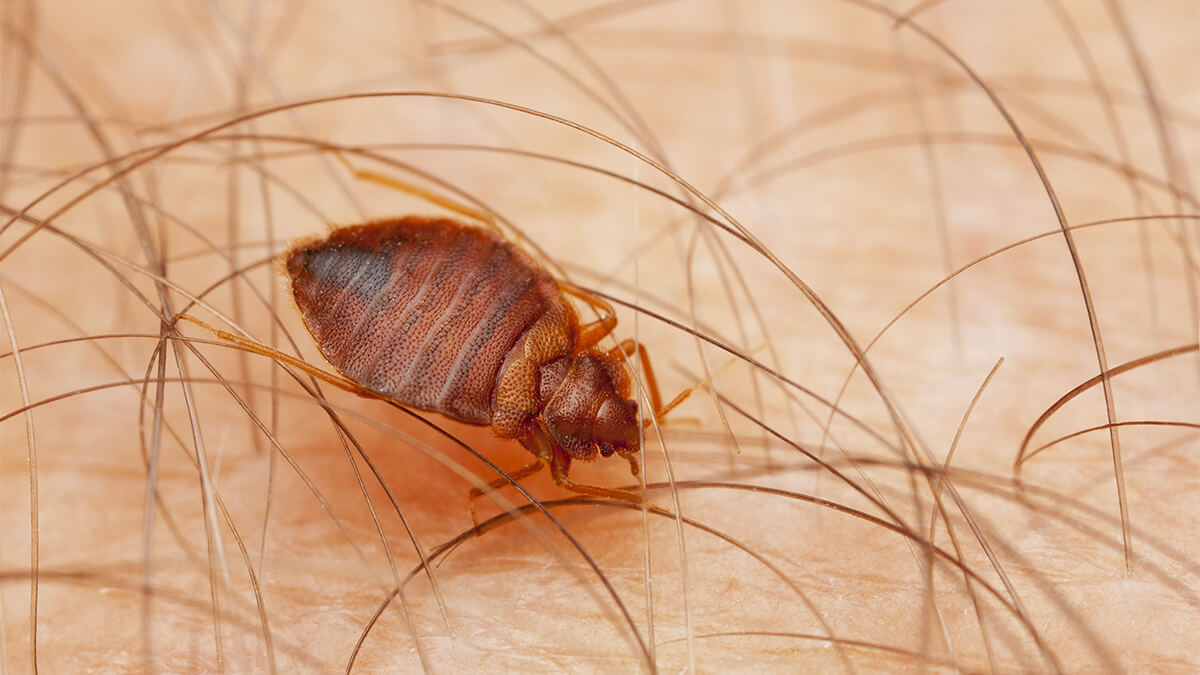Are Bed Bugs Dangerous?

Bed bugs are sneaky and annoying, but they do not cause so much harm, unlike other pests. Or so we think? One of the biggest challenges is realising that our beds in the house are more precisely our beds before the infestation spreads further. Their small size, combined with their excellent hiding skills and ability to survive without food for more than a month, makes them quite hard to detect.
Nevertheless, sensing the little insects’ presence early is important. On the one hand, they can breed fast once they find a favourable environment, and on the other, they may not be as harmless to humans as is commonly believed.
So, how dangerous are bed bugs?
Fortunately, bed bugs are not considered deadly, so they cannot kill you or your family. They are not known to transmit diseases, but they can still cause some unpleasant health complications.
In addition to physical harm in the form of skin bites, these little insects can also negatively affect our mental health by causing sleep deprivation and anxiety.
But more about the harmful effect of this pest below.
What can bed bugs do to us?
Bed bugs can travel great distances on people’s clothes, so spreading and breeding is not a problem for them. They can easily get into your home through your coat, luggage or boxes you use when moving. Then they find their way to your bed, hiding in places like the seams of the mattress or headboard during the day only to become active at night. In addition to the discomfort that bed bugs can cause, other more serious problems may follow.
Bed bug bites symptoms and dangers
We are most defenceless while we sleep, which is probably why the bed bugs prefer to feed at night. And what they leave behind are unpleasant red skin bites. They can be located on the legs, arms, even the face. The symptoms of a bed bug bite include redness, itchiness and swelling, as the severity can vary from one person to the other. In some cases, the insects’ bites can trigger an immediate reaction, while there may be no visible marks for up to two weeks in others.
Needless to say, more sensitive people, especially children, are more likely to develop symptoms and suffer complications. The latter may include an allergic reaction or bacterial infection. Scratching heavily can open a wound where bacteria can breed, so remember to disinfect the affected areas properly and consult with a doctor right away in case of an allergic reaction.
The psychological damage of dealing with bed bugs
It’s far more likely for someone to admit they have ants or roaches, or even rats, rather than bed bugs. This is understandable because these nasty little buggers also come with a sort of social stigma.
Because bed bugs reside in the bedroom, which is our most intimate space, it’s understandable we would feel embarrassed and would not feel comfortable talking about them with anyone. That’s why we also start hiding bed bug symptoms. No one wants to become a social pariah because of something that probably wasn’t their fault, to begin with.
In fact, these crawling insects can leave quite a mark not just on the skin, but on a person’s psyche, too. People who have dealt with bed bugs in the past are far more likely to develop anxiety or PTSD-like symptoms.
People start to inspect their beds several times before they get in. They think they are being crawled all the time. Small, dark pieces of wool can legitimately cause a panic attack. It’s not easy to live the following few years after an infestation. People can also lose sleep and dread getting into the bedroom.
So not talking about a bed bug infestation doesn’t make it any less of a problem and can actually do us more harm than good. It’s important to understand that these little buggers are a lot more common than expected and that there are experts who can help before things get any worse. You don’t have to do it alone.
How to prevent a bed bug infestation
Bed bugs are notoriously difficult to get rid of. That being said, you’re not completely helpless against them, either. Some procedures can significantly improve your chances of avoiding an infestation. Here’s what you can do:
- When you travel, leave your luggage outside the room and then perform an inspection. Carefully remove the sheets from the bed and check the mattress for bed bugs, small brown or red stains (especially around seams), shed skin or some other bed bug symptoms.
- When you get back from the trip, immediately wash and dry your clothes at the highest possible temperature based on the label’s instructions. You can disinfect your luggage bags, as well.
- Place plastic protectors on your mattress and bedding.
- Be careful when you leave your coat on the upholstered furniture in public places.
- If you’re buying pre-owned furniture, inspect it carefully for signs of bed bugs before buying it and definitely get them deep cleaned either with a steam cleaning machine or another way.
There are no guarantees, but at least taking precautions will significantly improve your chances. And if you suspect it’s already too late, you can also always call for professional bed bug inspection and removal.